 July 14, 2014 – On October 12, 2014, over 45,000 people will hit the ground running for the?Bank of America Chicago Marathon. The course, which boasts four world record times, is a flat and fast paradise for runners from all over the world. The Chicago Marathon is notably one of the best races for runners to reach for their personal record.
July 14, 2014 – On October 12, 2014, over 45,000 people will hit the ground running for the?Bank of America Chicago Marathon. The course, which boasts four world record times, is a flat and fast paradise for runners from all over the world. The Chicago Marathon is notably one of the best races for runners to reach for their personal record.
With cool and dry temperatures, the month of October brings perfect racing conditions. At the same time, this means that runners must train for the Chicago Marathon in the hot and muggy summer months, which can be very challenging.
Experts claim that the higher the temperature the higher the risk a runner has of suffering from dehydration, exhaustion and reduced blood flow to the muscles used for running.
Training in heat not only affects a runner’s body and health, it also affects their pace. According to a recent?article in Runner’s World, for every 10-degree increase in temperature above 55 degrees, runners can expect a 1.5 percent to 3 percent increase in their finish time.
Dr. Jeffrey Mjaanes, Midwest Orthopaedics at Rush?sports medicine physician, and one of the official team physicians for the Chicago Marathon offers advice for training in the heat. Dr. Mjaanes recommends:
- Get a physical before beginning marathon training.
- Hydration is key. It is important to begin each training session hydrated and to remain hydrated throughout each session by drinking 16 to 28 ounces of fluid per hour.
- Help your body adjust to the temperature changes by running at the same time every day.
- On very hot days, run either indoors on a treadmill or in the early mornings or evenings.
- When a long run is scheduled for a very hot day, consider moving the run to a cooler day. Remember that skipping a day will not affect your performance – in fact, a break may improve your overall time.
- Create your own shade by wearing sunscreen, a hat and sunglasses.
- Seek help and get out of the sun if you feel dizzy, chest pain, heart palpitations, shortness of breath, or you?ve stopped sweating and get the chills.
Click here for full podcast playlist.












